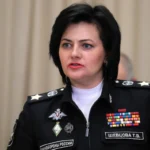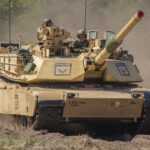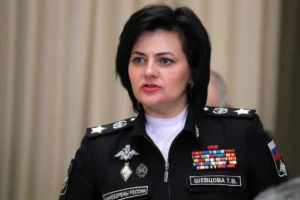Abdel Rahman Sumel, a 20-year-old university student, was killed by Sudan’s security forces during a peaceful march in Khartoum. It was December 2018, and the protests that finally overthrew President Omar el-Bashir’s regime had taken hold across the country, amid fuel shortages, a currency crisis and the tripling of bread prices.
Hundreds of young men and women were killed during the popular uprising, which called for a democratic civilian regime. The protests continued until April this year, when war broke out in Sudan.
Abdel Rahman’s father, Alsadiq, and other families have formed the Martyrs’ Families Organisation, to work for justice and to ensure the cause their children died for – freedom, peace and justice for Sudan – is realised.
Alsadiq wants his letter to his dead son to be published. He writes: “I apologise to anyone who may be offended by the views expressed in this letter, but it was prompted by moments of longing for those we have lost and our inability to get on with our lives. We have been forced to live with an increasing amount of death. Who among us has not lost a loved one? No one.”
Abdel Rahman, my son. Your mum showed me a photo of you today that I hadn’t seen before. I don’t know where or when it was taken but I was moved to write to you. War has broken out in our country and the destruction has expanded.
I know that you will already have missed the sound of your mother’s footsteps on her weekly Friday morning visits to your graveside. But I wanted to let you know that you were much luckier than those who were killed after you. Our consolation, the love of my soul, is that we carried you to your last resting place and buried you.
This now looks like a luxury compared with those who have been killed after you during this war. Mothers, fathers and friends have not been able to go and bury their loved ones. Most have been buried hastily in unmarked graves, so they have no address to be visited after peace returns. Some of the dead were buried in the spot where they were killed, and others, their bodies disintegrated over time by the side of the roads. What shame.
Your blood has been dwarfed by all the blood that has flowed since, and you know just how much I wanted yours to be the last to be lost. But things have become much more complicated, everyone sees things from their point of view: that there is some blood more sacred than that of others, and so it’s imperative that others’ blood flows in revenge. All that matters to them is that people should not be alive any more.
We still have not learned to see that all this lost blood concerns us all, we the people of Sudan. It has to stop, and we need to agree that it is unacceptable in our country to take somebody else’s life. The continuing attacks against the right of all of us to life are a disgrace.
My son, houses have been pillaged, people forced to leave their homes, sanctity violated and women raped. The space I once had to talk about forgiveness has become narrow, so I have become very silent.
It is very difficult, but very understandable to me that in these times of huge violations we cannot talk about forgiveness. The attacks on lives and possessions is such that it’s natural to want revenge. The people here are not a violent people, but they are forced to accept violence and go down its path. So you find me little interested in discussing the situation, for how can my voice be heard when my grief has been overshadowed by so many more deaths, and while those who have lost loved ones are still in a state of shock?
My son, things became complicated because it appears that we have not accepted living with each other. Now, we argue even before the other has started to speak. Anyone who wants to say anything about those in power is seen as a criminal, and it has become normal that people’s lives, money and sanctity have become tools in the battles of the powerful.
It seems that those who want war want it so as to keep power, and those who want to stop them, do so to secure a new kind of power. As for those who want life, nobody cares about them.
The people are divided over the war. The fight between them is greater than that between the army and the Rapid Support Forces. Some think that they must stand with government institutions as a point of pride, chivalry and manliness, and that any other opinions are treason against the nation and should result in blood and death.
There are those who can’t see that what has fallen upon the people is a result of the violations to their rights. These people believe that the population must accept this situation without question and decide who is patriotic and who is the traitor. Most of the population are dispersed, living far from their independent lives and their memories, some depending on their savings and others on relatives and friends. Some have become victims to the merchants of scarcity who kill them in a different way.
I don’t know, my son, how much more blood and destruction the people need before they realise that the rule of law, justice and civil institutions are the only things that protect them from perpetuating violence towards each other.
When will people decide to choose the path of life?
My son, be assured that I am still alive and still have the same stupidity that you left me with on the day you departed. I sit by the wayside trying to peddle what remains of your cause in case it brings security and peace for those who want it. There are those who see goodness in me and others who see me as living in an old delusional way. I don’t see any beauty, apart from being near you, my dear. I have been away from you, and you away from me, for too long.
Source: The Guardian











